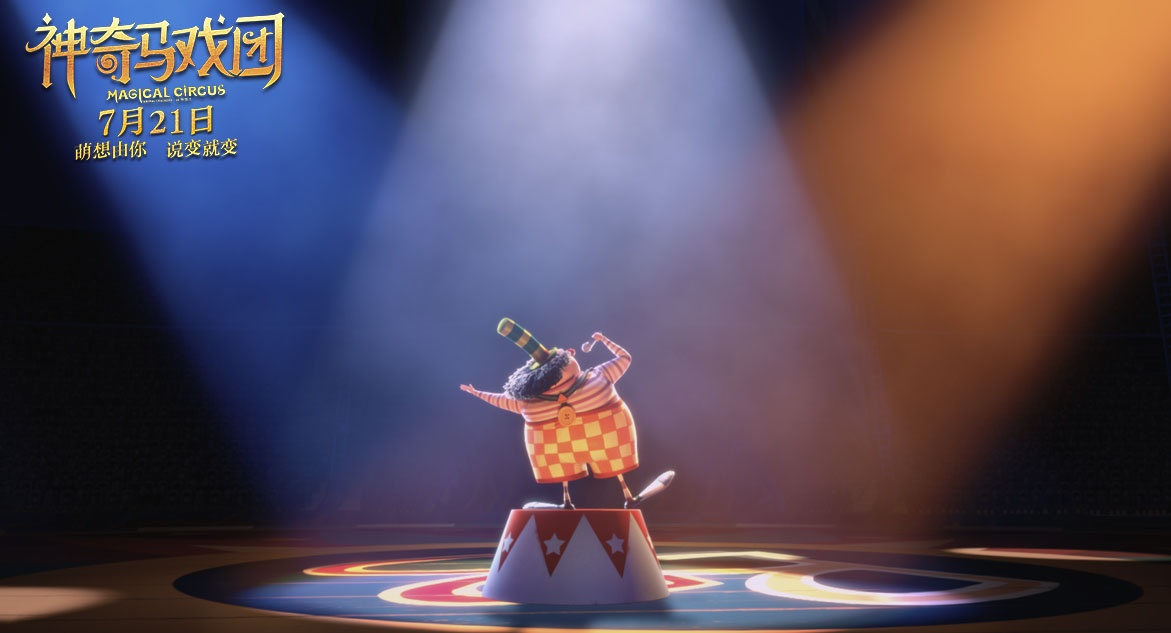May 1 travel bookings soared, and the domestic tourism economy began to fully recover.
From 0: 00 on March 16th, people from low-risk areas in China no longer need to have negative nucleic acid test certificates within 7 days before arriving in Beijing. Affected by this good news, the reporter learned from a number of online travel platforms that the popularity of flights in and out of Beijing has risen rapidly. In fact, since the fourth quarter of last year, the domestic tourism economy has gradually begun to recover in an orderly manner to a comprehensive recovery. China tourism academy had predicted that in 2021, the number of domestic tourists would reach 4.1 billion, and the tourism economy would return to full recovery in consumption and investment.
Small holiday ticket search booking volume is gratifying, and travel demand may be released in advance.
According to the latest data from Ctrip, from 16: 00 to 22: 00 on March 15th, the number of users accessing Ctrip APP increased by 9% compared with the previous day and 14% compared with last week.
Affected by the news that the Beijing area canceled the nucleic acid certification of entering and leaving Beijing, the search and reservation of air tickets and train tickets related to Beijing rose. According to the data from Ctrip platform, in a short time after the announcement of the same day, the instantaneous search volume of Beijing’s originating routes soared, with an increase rate of 100%. Air ticket bookings increased by 60%; Where to go data shows that as of 15: 00 pm on March 12, the booking volume of air tickets and train tickets in and out of Beijing has doubled respectively compared with the same period of the previous day; Within one hour after the news was released, the search volume of air tickets entering and leaving Beijing on March 16 on the same travel platform rose, increasing by 500% compared with the previous hour, among which the search volume of air tickets to Beijing was mostly. The routes with high search volume mainly include Shanghai to Beijing, Chengdu to Beijing, Shenzhen to Beijing, Xiaoshan to Beijing, Guangzhou to Beijing, Beijing to Shanghai, Beijing to Shenzhen and Beijing to Chengdu.
Since the Year of the Ox, with the improvement of domestic epidemic situation, residents’ willingness to travel has increased, and domestic air passenger demand has continued to pick up. According to the latest data from the Civil Aviation Administration, the passenger traffic of civil aviation increased by 187% in February. According to CAPSE data of the tripartite organization, in March, passengers’ willingness to travel quickly recovered, and their willingness to travel for business and tourism was greatly improved. In March 2021, the index of passengers’ willingness to travel increased by 35% from February and 107% year-on-year. At the same time, in March 2021, the proportion of passengers with travel arrangements was 76%, up 4% from February. At present, domestic flights have returned to the level of 85% in the same period before the epidemic. Market institutions have said that in the future, when the epidemic situation can be controlled, it is expected that domestic aviation demand will usher in a small peak during the Qingming and May Day holidays.
It is worth noting that the related searches for the Qingming small holiday and the May Day small holiday have continued to rise since the festival. Where to go data shows that as of now, the booking volume of May 1 air tickets has exceeded 2019. Lan Xiang, dean of Qunar Big Data Research Institute, said that the cancellation of nucleic acid testing certificate in Beijing will greatly stimulate recent travel, and the demand for vacation and visiting relatives suppressed in the local New Year will be gradually released before the small holiday, and rigid travel represented by business travel will also usher in a wave of substantial growth.
Regarding the increase in demand for Qingming and May Day holidays, Lan Xiang said that from March 27 to 28, civil aviation will begin to implement the summer and autumn season. After the season change, airlines will readjust their capacity, and many flights will also have adjustment times. Passengers may wish to wait for the flight to change seasons before planning their holiday trips.
There are obvious signs of recovery, and the tourism fever in more than 100 cities has increased by over 50%
After the holiday, the tourism industry ushered in a recovery, and tourist stores also regained their previous popularity. Since the seventh day of the Lunar New Year, the number of people who went to Ctrip stores to register for tourism has increased significantly. From the seventh day to the end of February, the number of stores in various places was close to 30,000. According to the current booking situation of stores around the country, it is estimated that more than 50,000 people will travel in March. "Clearing the high-risk areas in the country is undoubtedly a big plus for the tourism industry." Zhang Li, CEO of Ctrip’s Tourism Channel Division, said: "From the data point of view, the transaction volume has increased greatly, which is about 10 times higher than that during the Spring Festival. The improvement of tourists’ confidence in traveling is stimulating the accelerated recovery of tourism. "
There are still more than 20 days before the Qingming small holiday, but the hotel reservation has started. Compared with 2019 and 2020, where to go data shows that the average price of Qingming hotel reservations in 2021 is about 15% higher. Holiday hotels and design homestays are popular, especially hotels around large scenic spots have higher bookings. At present, the booking crowd of the hotel is mainly in the post-90 s and post-60 s age groups. The number of hotel reservations after 50 s and 60 s in the current travel group has exceeded the level of last year and the year before.
From the second half of the Spring Festival holiday, the hotel reservation during the May Day holiday has also been quietly opened. The booking mode of "accommodation first and transportation later" has become the choice of many tourists. Where to go data shows that the number of hotel reservations on the day of "May 1" has exceeded the same period in 2019. Many traditional popular tourist destinations even have hotels that are difficult to book, and many hotel rooms in Luoyang, Dali, Suzhou and other places have been reminded of tight inventory.
Lan Xiang pointed out that the demand for tourists’ travel is always huge. During the Spring Festival, many travel demands have been delayed, and the booking mode of "accommodation first and transportation later" is actually the best embodiment of tourists’ travel demands. Tourists book hotels first, and then make supplementary reservations after the travel policies related to air tickets and train tickets are clear. On the one hand, they can avoid peak booking and save costs, on the other hand, they can adjust their travel plans in real time.
According to the big data from Ma Honeycomb Tourism, the spring tourism fever in nearly 100 cities across the country has increased by more than 50%. "After more than a year of normalized epidemic prevention, China tourists have become more accustomed to weekend trips and short-distance trips, and have truly achieved’ say and go’." Feng Rao, head of Ma Honeycomb Tourism Research Center, said that when many tourists shared their travel stories in 2020 on Ma Honeycomb platform, they mentioned that long-term travel plans were often interrupted by sudden changes in the epidemic situation, so many tourists chose to "go and go" when the epidemic prevention and control situation was good. From the end of February to the beginning of March, good news of epidemic prevention and control came frequently, and tourists’ attention to tourism also increased greatly.
Zhang Zhining, deputy director of the Strategic Research Center of Ctrip Research Institute, said that this year is the second May Day holiday after China entered the stage of normalized epidemic prevention and control. Judging from the performance of the "May 1" tourism market in 2020, the domestic tourism market will recover to 53.5% and 36.7% of the same period of last year in terms of the number of visitors and tourism income, respectively. Ctrip Group’s traffic orders during the "May 1" period in 2020 increased by more than 130% compared with April, and car rental orders recovered in full compared with the same period in 2019, and achieved an increase of about 10%. As the domestic epidemic continues to show a steady and positive trend, the "May 1" tourism market in 2021 will also accelerate the pace of recovery. It is predicted that during the May Day holiday this year, the local tourism and Zhou Bianyou market will still maintain a strong growth momentum. Judging from the mode of travel, go on road trip will remain a popular choice for Chinese tourists during the May Day holiday this year. From the perspective of market segments, high-quality products such as private groups and high-star hotels will still be the first choice for users to travel. At present, the China version of the "International Travel Health Certificate" has been officially launched, and the tourism industry is also looking forward to welcoming the resumption of the international travel market under the guidance of relevant state departments.
The popularity of flower viewing has soared, and self-driving travel has become the first choice.
On March 13th, a Weibo of Nanjing traffic police boarded a hot search: by 18: 00 that day, 60,000 people had flocked to Jimingsi Road in Nanjing to enjoy cherry blossoms. In the flower viewing season, the cherry blossoms of Wuhan University, the rape blossoms of Wulingyuan Jiangling, the cherry blossoms of Yuantouzhu and Nianhuawan in Wuxi have opened one after another. With the clearing of high-risk areas in the national epidemic, all localities have ushered in the highlight moment of flower viewing.
Ctrip data shows that the search volume of the keyword "flower viewing" on Ctrip platform increased by 280% at the end of February; The number of people who recently booked flower viewing scenic spots in Ctrip increased by 115% compared with 2019; On the Ma Honeycomb tourism platform, the keyword search popularity of "Where to Go in March" rose by 34%. The popularity of "Sakura" tourism search has recently increased by 22%. It’s the cherry blossom season in Wuhan University, and the "cherry blossom viewing tide" staged in Jiangcheng last spring can be described as a wonder of flower viewing. In addition to Wuhan, Wuxi Yuantouzhu, Shanghai Gucun Park and other famous cherry blossom viewing spots in the south have entered the early cherry blossom viewing period one after another, and the 10,000-acre cherry blossom garden in Pingba, Guizhou is also in bud.
Wuyuan, Jiangxi Province, which is famous for its rape blossoms, has become the fastest-growing tourist destination in Mawei, with a weekly increase of 57%. The tulips in Taiziwan Park near the West Lake in Hangzhou have also entered the full bloom stage, with 35 varieties of tulips, daffodils, grape hyacinthus orientalis, etc. Recently, Beijing has launched 12 "Days of Flowers Blooming-Walking in Beijing to Enjoy Spring Flowers and Read Architecture Theme Tour" routes, which are sorted according to the most beautiful and representative twelve kinds of flowers in Beijing in spring, including winter jasmine, magnolia, peach blossom, plum blossom, cherry blossom, clove, begonia, apricot blossom, pear flower, tulip, peony and phoenix tree.
The most popular tourist game in spring is still flower viewing, but people’s travel style, travel experience and destination choice have changed. Self-driving has become the first choice for domestic tourists to start long-distance flower viewing trips this year. Key words such as self-driving on Sichuan-Tibet line and self-driving in Xinjiang have gained high tourism attention from February to March.
According to the data of Ma Honeycomb, among many flower viewing destinations, the spring tourism popularity of Yili in Xinjiang increased by 317% on the platform, making it the city with the highest increase in spring tourism popularity. Every year around Tomb-Sweeping Day, the apricot blossom in Yili, Xinjiang, one of the "Top Ten Scenes of Flower Appreciation" in China, and the apricot blossom festival is also held during the flowering period. In addition, Linzhi, Xizang, which is famous for its peach blossoms, experienced a 298% increase in spring tourism. Turpan, Dalian, Anshun, Kashgar, Kizilsu Kirgiz Autonomous Prefecture, Jiayuguan, Gannan and Bijie also entered the top ten in the national spring tourism heat increase list, and the heat increased by more than 160%. The cherry blossoms in Pingba, Anshun, and the azalea flower sea in Bijie are all popular choices for spring outing. (Wei Xiayi)







































